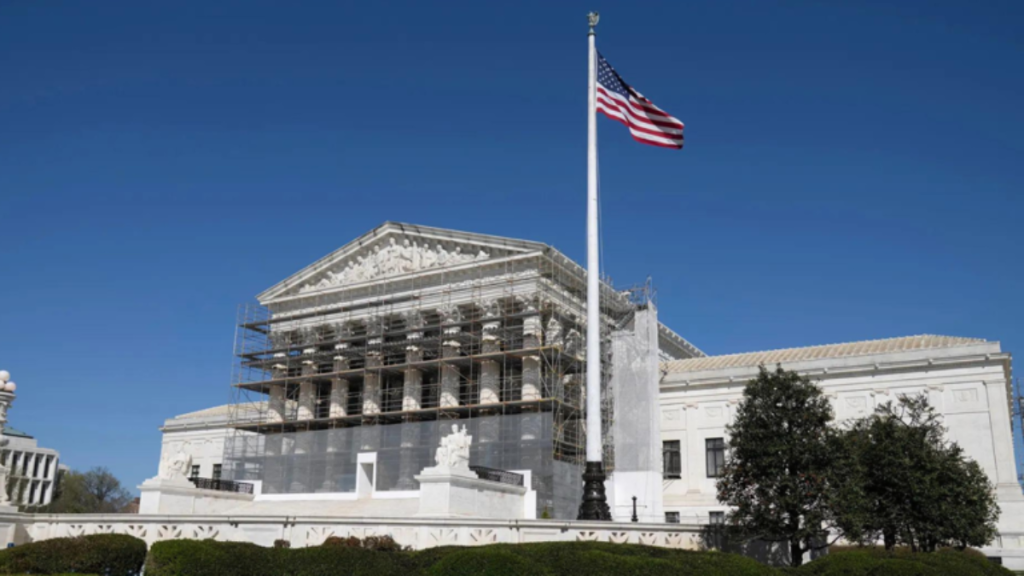The Trump administration has come under heavy criticism this week after making a false claim about a Supreme Court decision—a move that has prompted swift pushback from legal experts, political commentators, and members of the public alike.
Controversial Claim Misstates SCOTUS Ruling
During a recent appearance at a campaign event, a spokesperson for the former president cited what they claimed was a Supreme Court ruling that backed Trump’s right to take specific executive actions without judicial interference.
However, fact-checkers and legal scholars were quick to respond, pointing out that the high court never made such a declaration.
The quote in question allegedly misrepresented a past decision related to executive authority, twisting the court’s actual language into a defense of Trump’s controversial use of power. According to constitutional law experts, the Supreme Court’s actual opinion was far more nuanced and did not offer the blanket support the Trump spokesperson claimed.
“This is a blatant misinterpretation,” said Laurence Tribe, a Harvard Law professor. “The Supreme Court never said what they’re attributing to it. Misrepresenting legal decisions like this undermines public trust in our institutions.”
Legal Community and Fact-Checkers Respond Swiftly
Legal professionals were quick to discredit the Trump team’s interpretation. Prominent fact-checking sites like Politifact and Snopes flagged the claim as false, citing the actual language of the ruling that had been referenced.
According to Politifact, the Supreme Court’s ruling did not affirm unlimited executive authority, as was implied. Rather, the Court stressed the importance of checks and balances and underscored the judiciary’s role in limiting overreach.
“This is not the first time the former president’s team has made misleading or inaccurate legal statements,” said a Politifact analyst. “But the public deserves honesty—especially when constitutional rights and powers are involved.”
Backlash Grows on Social Media
The phrase “SCOTUS never said that” quickly trended across social media platforms, as critics, comedians, and political figures used it to highlight the Trump camp’s misstep. Twitter users shared side-by-side comparisons of the actual ruling versus the statement given by the Trump administration.
Political opponents, including several Democratic lawmakers, seized the moment to criticize what they called a pattern of misinformation. “It’s disturbing that a presidential candidate continues to spread lies about the courts,” tweeted Rep. Jamie Raskin (D-MD). “This kind of rhetoric only fuels public distrust.”
Even some conservative commentators voiced concern, urging Trump’s team to correct the record before the misstatement caused further damage to the campaign’s credibility.

A Pattern of Legal Confusion?
This latest incident isn’t the first time Trump or his representatives have drawn criticism for misleading interpretations of legal proceedings. Throughout his presidency and post-presidency period, Trump has often clashed with judicial rulings—frequently labeling decisions against him as unfair or politically motivated.
During the 2020 election disputes, Trump’s legal team misrepresented several court decisions, leading to disciplinary actions against some attorneys and harsh rebukes from judges. Observers warn that continued mischaracterization of court rulings could have long-term consequences for the rule of law.
“This erosion of fact-based legal interpretation is dangerous,” said constitutional expert Kim Wehle. “It weakens our institutions and distorts the public’s understanding of their rights.”
Implications for 2024 and Beyond
With Trump actively campaigning for a return to the White House in 2024, this controversy could have wider political implications. On the one hand, the misstatement may energize his base, which often views media and legal institutions as biased against him. On the other, it could alienate moderate voters who value institutional integrity.
As the 2024 election draws closer, both parties are expected to focus heavily on issues surrounding the Supreme Court, executive authority, and the rule of law. Missteps like this may become key talking points in debates and campaign ads.
“This kind of blunder reinforces what many Americans fear about a Trump second term,” said political analyst Ana Navarro. “More chaos, more misinformation, and more attacks on our democratic foundations.”
Conclusion: Transparency and Accountability Essential in Legal Discourse
The misrepresentation of a Supreme Court ruling by the Trump administration has reignited debate over how political leaders interpret—and often misinterpret—judicial decisions for strategic gain. As legal experts and lawmakers call for accountability, it is clear that accurate representation of legal facts is essential to preserving public trust and democratic integrity.
With growing scrutiny and fact-checking in the digital age, candidates can no longer afford to make such errors without consequences. If Trump’s campaign hopes to regain credibility, a recommitment to truth in legal and political discourse may be the first step.
For more in-depth legal analysis of the situation, visit SCOTUSblog’s recent coverage.
Disclaimer – Our team has carefully fact-checked this article to make sure it’s accurate and free from any misinformation. We’re dedicated to keeping our content honest and reliable for our readers.
